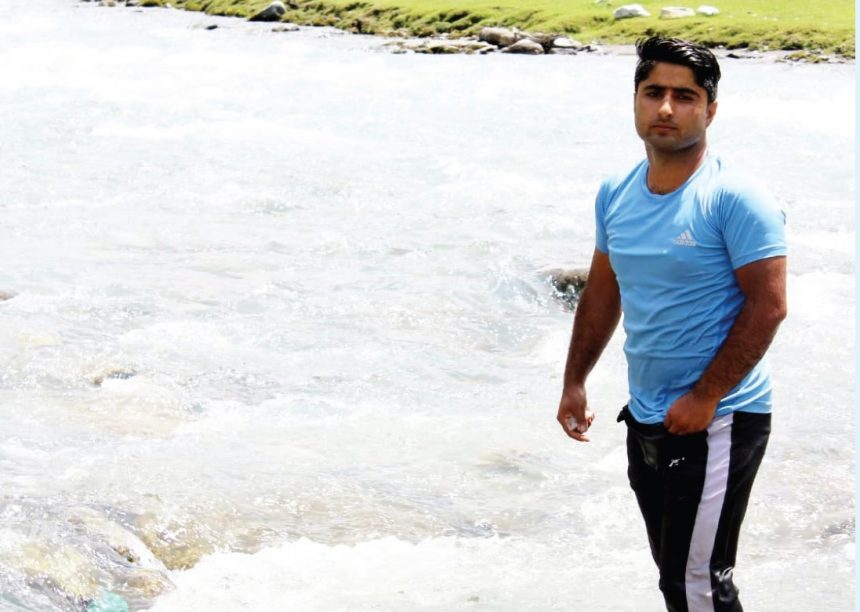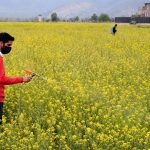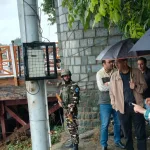In the verdant valleys and snow-fed rivers of Kashmir, heroism often emerges not from grand declarations, but from quiet, relentless acts of courage. In the heart of Ganderbal district, where the wild River Sindh cuts through steep gorges and rocky terrain, lives a man whose name has become inseparable from rescue and resilience—Haris Bashir Rather, affectionately known by locals as “Harry.” His story is not written in history books or carved in stone, but in the lives he has saved and the tears he has wiped away. Haris is a living testament to the power of selflessness, the spirit of community, and the enduring strength of one individual’s resolve.
Haris’s journey did not begin with fame or the intent of becoming a savior. His roots are humble, grounded in a community that has faced both the wrath of nature and the trials of underdevelopment. As a child growing up near the banks of River Sindh, Haris formed a natural connection with water. But it was Bashir Ahmad Mir, a teacher and mentor, who truly shaped his destiny. Under Mir’s tutelage, Haris learned not just how to swim but how to understand the river—its moods, its dangers, and most importantly, how to master its currents.
“I have learned a lot about swimming from him,” Haris says with quiet reverence. This acknowledgment of his mentor reflects the humility with which he carries his accomplishments. It wasn’t long before his skill evolved into a mission, driven by an ever-growing desire to serve.
The Ganderbal-Sonamarg highway, winding along the banks of the River Sindh, is notoriously accident-prone. With its narrow stretches and sharp turns, vehicles often meet tragic ends by tumbling into the cold, fast-moving river. It is here that Haris has repeatedly emerged as a one-man rescue team, diving headfirst into peril while others watch in horror. Each time a car crashes into the river or a person is swept away by the unforgiving current, it is Harry who is first on the scene, cutting through the icy water with speed and determination.
“I jump into the gushing water to save lives or retrieve bodies with SDRF—it’s my passion,” Haris told Rising Kashmir. These are not words of bravado but a sincere declaration of purpose. His rescues are often documented on social media, where his videos—raw, unfiltered, and emotional—have garnered widespread attention. Yet Haris does not seek validation or recognition. For him, these digital footprints serve as a grim reminder of the river’s dangers and the fragility of life.
Haris’s influence is deeply felt in the communities along the river. In places like Kangan, where tragedy struck recently as a youth was swept into the Haknar Gund Power Canal, it was Haris, alongside the SDRF Gund and local police, who responded swiftly. His presence brought not just action but comfort to grieving families. The recovery of the body was a somber moment, but Haris’s involvement offered a measure of solace to the anguished community.
A local resident captured the collective sentiment in a heartfelt note, praising Haris’s “remarkable bravery” and declaring that “his actions reflect the true spirit of humanity.” In regions where access to emergency services is often delayed or inadequate, Harry has become more than just a rescuer—he is a guardian angel, a symbol of hope for people who know how quickly life can be lost to the river.
What makes a man risk his life time and again for strangers? The answer, in Harry’s case, is both simple and profound. “I do this in the path of Almighty,” he says. For Haris, saving lives or helping others is a spiritual calling, not a profession. He shuns personal accolades and avoids the limelight, even as his fame grows. His motivations are rooted in faith and a deep sense of duty to others.
This unwavering commitment to selfless service is what sets Haris apart. In a world often obsessed with personal gain and visibility, he stands as a rare figure—a man who acts not for reward, but because it is the right thing to do. His humility, courage, and deep compassion define a form of heroism that is both deeply human and deeply divine.
Haris Bashir Rather, the unsung hero of River Sindh, reminds us that greatness often flows silently through the veins of ordinary people doing extraordinary things. His story is a mirror to our collective conscience, challenging us to ask: What are we doing for those around us? In the icy waters of a deadly river, Harry has found his purpose—not in survival, but in saving lives.








